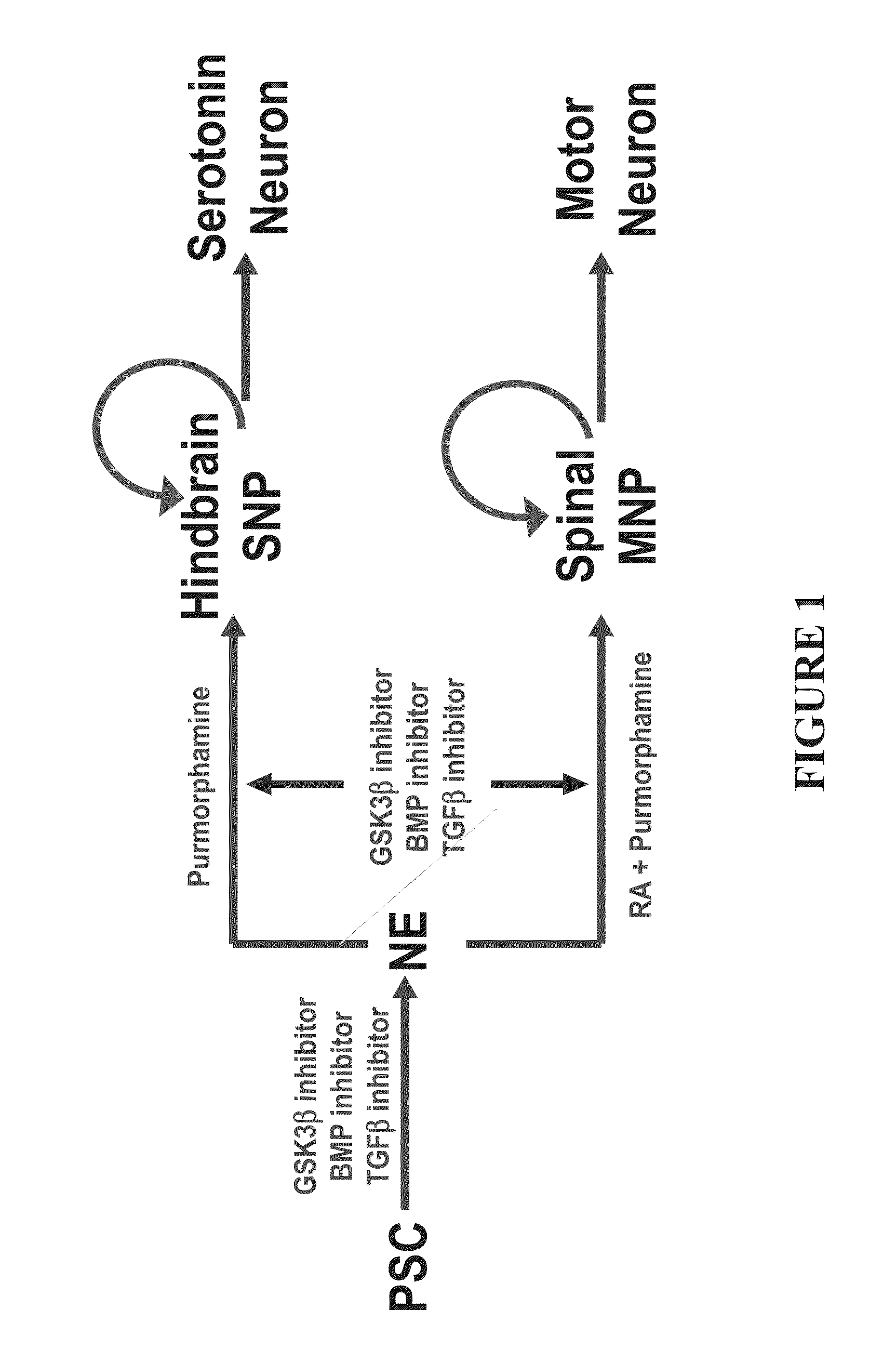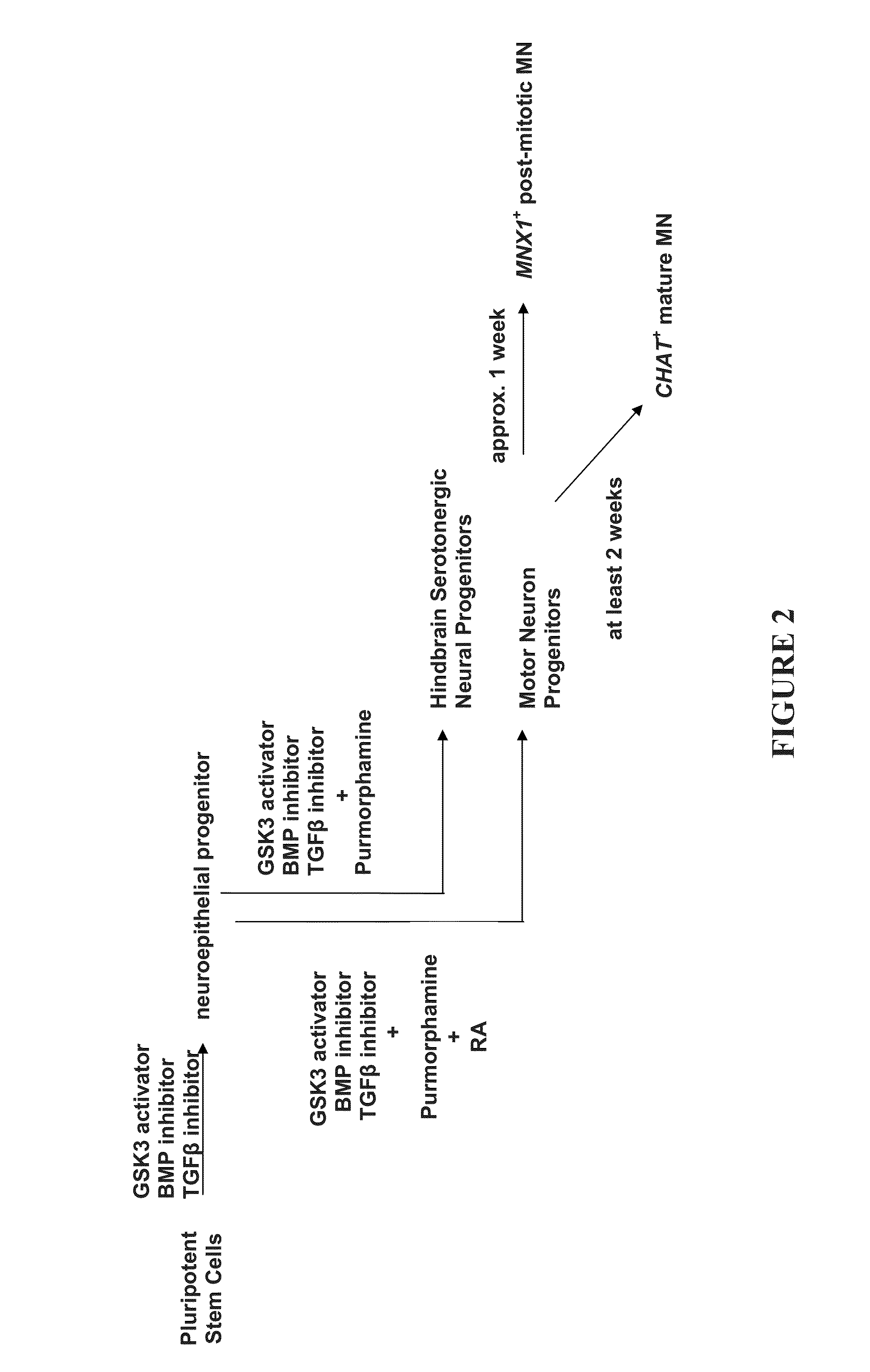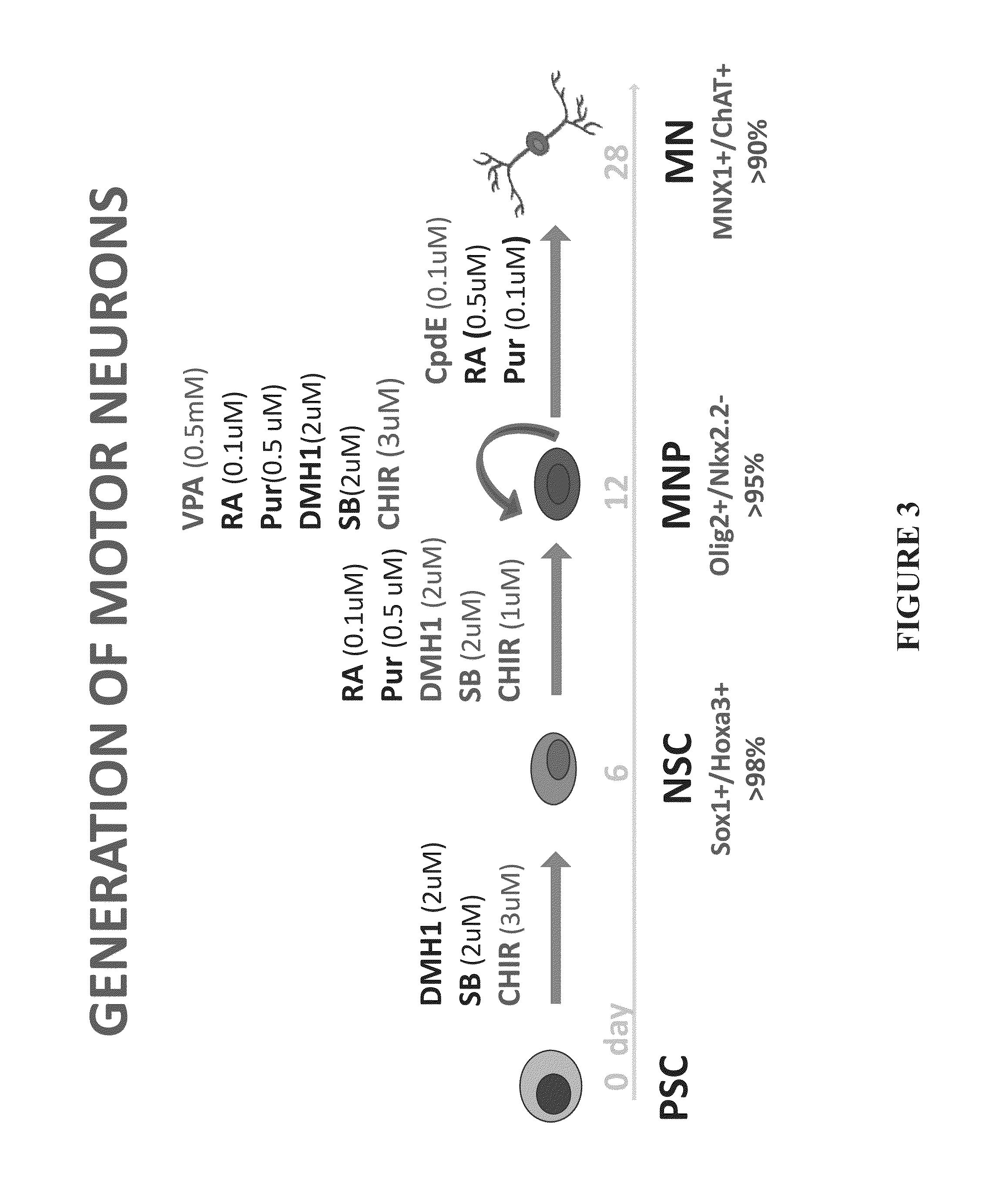Methods of Maintaining, Expanding and Differentiating Neuronal Subtype Specific Progenitors
- Summary
- Abstract
- Description
- Claims
- Application Information
AI Technical Summary
Benefits of technology
Problems solved by technology
Method used
Image
Examples
example 1
Efficient Generation of MN Progenitors from hESCs in 2 Weeks
[0091]To induce the specification of neuroepithelial cells from human pluripotent cells, the dual TGFβ / BMP inhibition approach was applied for human embryonic stem cells in a monolayer culture. See, for review, Chambers et al., Nature Biotech. 27:275-280 (2009). The small molecule SB431542 represses TGFβ signaling by selectively inhibiting Activin receptor-like kinase ALK4 / 5 / 7. The small molecule DMH-1 represses BMP signaling by selectively inhibiting the BMP receptor kinase ALK2. Human embryonic stem cells (hESCs) were treated with 2 μM DMH-1 and 2 μM SB431542 for 1 week. Treated hESCs were then induced to differentiate into populations comprising about 85% SOX1+ neuroepithelial cells but also comprising other cell lineages due to spontaneous ESC differentiation, since the dual Nodal / BMP inhibitors SB431542 and DMH-1 are unable to prevent all spontaneous differentiation into other cell lineages, especially when ESC colonie...
example 2
Long-Term Expansion of OLIG2+ MN Progenitors
[0094]Next, we examined whether OLIG2+ MN precursors could be maintained as a continuously dividing population. OLIG2+ MN precursors obtained from the 2-week differentiation were split and cultured under CDS conditions (i.e., in the presence of the 3-molecule CDS cocktail) plus 0.1 μM RA and 0.5 μM purmorphamine. However, the cells gradually lost their dividing potential and became post-mitotic MNs as determined by staining for MNX1, which suggested that RA induces the exit of cell cycle and promotes neurogenesis. Withdrawing RA from the culture was attempted. In the presence of the CDS cocktail plus 0.5 μM purmorphamine, the cells expanded but the neural precursors gradually lost OLIG2 expression and increased NKX2.2 expression, which suggested that purmorphamine alone cannot maintain MN precursors. Instead, the cells switch into p3 domain precursors. Next, motor neuron progenitors were cultured with the CDS cocktail plus RA, purmorphamin...
example 3
Differentiating and Maintaining Hindbrain Serotonergic Neural Progenitors
[0096]Human embryonic stem cells or induced pluripotent stem cells were seeded onto laminin-coated plates and cultured in human ESC medium for 1 day. (See below for medium components.) On the following day, the culture medium was changed to Neurobasal culture medium comprising 2 μM SB431542, 2 μM DMH1, and 1.0-3.0 μM CHIR99021 for one week. Neural progenitors having hindbrain identity were generated from human pluripotent stem cells. The hindbrain neural progenitors were defined by their expression of hindbrain makers (e.g., GBX2, KROX20, HOXA1-4, HOXB1-4), but not forebrain markers (e.g., FOXG1, OTX2, EMX1, NKX2.1, SIX3), midbrain markers (e.g., EN1, LMX1A, LMX1B, SIM1, LIM1), or spinal cord markers (e.g., HOXB6, HOXB8). The progenitors also included the neural progenitor markers (e.g., SOX1, SOX2, NESTIN, N-Cadherin, and Ki67).
[0097]To differentiate neural progenitors toward the serotonergic neural cell fate,...
PUM
 Login to View More
Login to View More Abstract
Description
Claims
Application Information
 Login to View More
Login to View More - R&D
- Intellectual Property
- Life Sciences
- Materials
- Tech Scout
- Unparalleled Data Quality
- Higher Quality Content
- 60% Fewer Hallucinations
Browse by: Latest US Patents, China's latest patents, Technical Efficacy Thesaurus, Application Domain, Technology Topic, Popular Technical Reports.
© 2025 PatSnap. All rights reserved.Legal|Privacy policy|Modern Slavery Act Transparency Statement|Sitemap|About US| Contact US: help@patsnap.com



